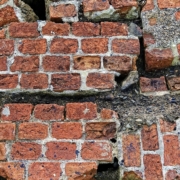What was the reason for the Sino-Soviet split?
Topic of Study [For H1 History Students]:
Section B: Essay Writing
Theme II: Cold War in Asia [1945-1991] – China and the Cold War (1950-1991): Sino-Soviet relations
An ideological split: Khrushchev’s ‘Secret Speech’
The Sino-Soviet split was recognised by historians as one of the most significant events of the Cold War. It meant the ‘shattering of socialist solidarity‘. This ‘Split’ could be traced to the controversial speech made by the Soviet leader Nikita Khrushchev during the 20th Communist Party of the Soviet Union (CPSU) Party Congress on 24-25 February 1956.
Unlike Mao Zedong, who revered the late Stalin (who died three years earlier) as a leading advocate of Communism, Khrushchev denounced Stalinism. He criticised the personality cult, show trials and purges that terrorised the people. As such, Mao perceived Khrushchev’s scathing characterisation of Stalin’s rule as a direct attack on his ideological beliefs.
Some people consider that Stalin was wrong in everything. This is a grave misconception. Stalin was a great Marxist-Leninist, yet at the same time a Marxist-Leninist who committed several gross errors without realizing that they were errors. We should view Stalin from a historical standpoint, make a proper and all round analysis to see where he was right and where he was wrong and draw useful lessons therefrom. Both the things he did right and the things he did wrong were phenomena of the international communist movement and bore the imprint of the times.
An excerpt taken from a newspaper article titled ‘Stalin’s Place in History‘ in the People’s Daily editorial, 5 April 1956.
Evidently, Mao’s opposition to the Soviet leader’s denunciation of Stalin was clearly expressed in the above newspaper article published two months after the ‘Secret Speech’.
Nonetheless, Sino-Soviet cooperation still existed at this stage, given that Mao and Stalin signed the Treaty of Friendship, Alliance and Mutual Assistance in February 1950. Both parties agreed to render military aid should either be attacked. In addition, the Soviet Union sent numerous scientists, students and technicians to work in China, facilitating industrialisation.
Mao’s rejection of Khrushchev’s ‘Peaceful Coexistence’
In the ‘Secret Speech’, Khrushchev also called for a ‘Peaceful Coexistence’ with the West, claiming that the Communist bloc was not ‘destined’ to clash with Capitalism through violent revolution as claimed by Stalin in his ‘Bolshoi speech‘ in February 1946.
While Khrushchev pledged to do all possible to avoid a Third World War, Mao’s camp proclaimed that war with the ‘imperialists’ was inevitable – any other view betrayed the revolution.
Throughout 1958, Mao deliberately manufactured global quarrels in a way that was explicitly designed to challenge ‘peaceful coexistence’ and to style himself the world supremo of revolutionary troublemaking. That year, the Central Committee enshrined Mao’s slogan of ‘continuous revolution’ – a term designed to distinguish Mao’s own tireless revolution from its stalled Soviet counterpart.
An excerpt taken from “Maoism: A Global History” by Julia Lovell.
In the late 1950s, Mao made clear intentions to antaognise both the Soviet Union and the United states.
In July 1958, Khrushchev made a visit to China over Mao’s disagreements over a proposed joint submarine fleet. The ‘petty’ Mao went through great lengths to ensure that his Soviet guest was uncomfortable throughout his visit. For instance, he made Khrushchev stay in a mosquito-infested guest house without air conditioning.
In August 1958, Mao renewed tensions with the West by authorising the bombardment of Jinmen, which was part of the Republic of China (ROC). This gave rise to the second Taiwan Straits Crisis. In retaliation, US Secretary of State John Foster Dulles threatened to deploy nuclear weapons.
Mao had serious doubts about the Soviet Union’s diplomatic line, with its emphasis on relaxing relations with the United States in order to improve the consumer economy and raise the standard of living. […] The Taiwan Strait Crisis of 1958 exemplified the major Sino-Soviet differences in foreign policies, and Khrushchev felt Mao’s divergence was intolerable and he was determined to show Mao who was boss.
An excerpt taken from “Mao and the Sino–Soviet Partnership, 1945–1959: A New History” by Zhihua Shen and Yafeng Xia.
Join our JC History Tuition to learn more about the Cold War. The H2 and H1 History Tuition feature online discussion and writing practices to enhance your knowledge application skills. Get useful study notes and clarify your doubts on the subject with the tutor. You can also follow our Telegram Channel to get useful updates.
We have other JC tuition classes, such as JC Math Tuition and JC Chemistry Tuition. For Secondary Tuition, we provide Secondary English Tuition, Secondary Math tuition, Secondary Chemistry Tuition, Social Studies Tuition, Geography, History Tuition and Secondary Economics Tuition. For Primary Tuition, we have Primary English, Math and Science Tuition. Call 9658 5789 to find out more.

